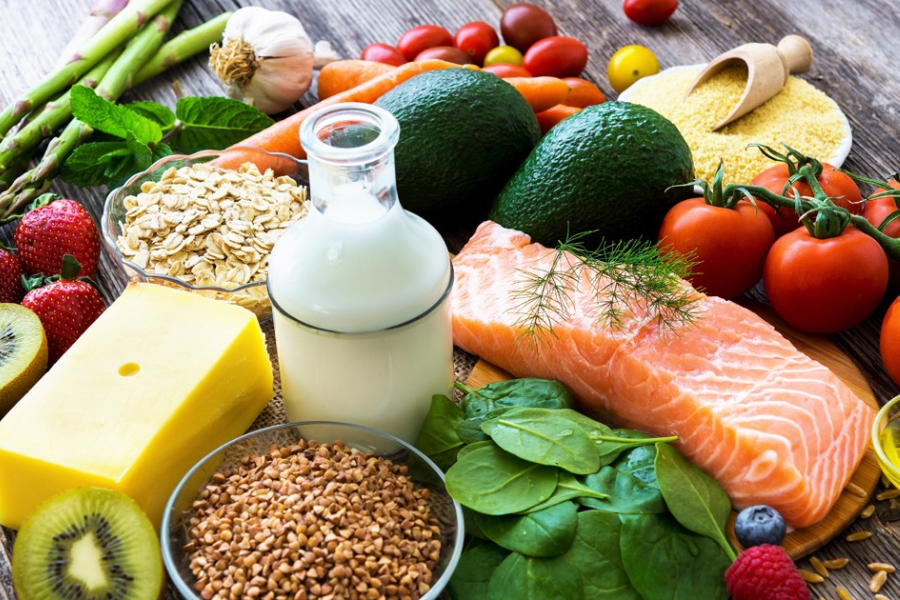The Importance of Diet for Oral Health
A healthy, radiant smile is mostly dependent on your food. Your oral health can be significantly affected by your food intake. Just as certain foods encourage tooth decay and gum disease, others can promote oral hygiene and vitality. A balanced diet that has essential vitamins and minerals benefits your body and supports strong teeth and healthy gums. Ensuring this is essential whether a person has PPO dental insurance or not.
Dairy Products
Dairy products are necessary to maintain the brightness of your smile, including milk, cheese, and yogurt. These foods are high in calcium, which is crucial for maintaining strong tooth enamel. Calcium helps remineralize teeth, making them more resistant to decay. Dairy products are also frequently supplemented with vitamin D, which maximizes the advantages of calcium by assisting in its absorption. Cheese, in particular, can help neutralize the acids in the mouth produced by bacterial plaque, reducing the risk of cavities.
Fruits and Vegetables
Fruits and vegetables are fantastic for your teeth and gums. Crunchy foods like celery, carrots, and apples also function as natural toothbrushes. These foods can scrub away plaque and food particles from the teeth, stimulate saliva production, and help neutralize acids in the mouth. Saliva is your mouth’s first defense against tooth decay as it contains trace amounts of calcium and phosphate that strengthen the enamel. Because leafy greens like spinach and kale contain a lot of folic acid and calcium, which support healthy gums, they are also very useful.
Lean Proteins
Lean proteins like chicken, fish, and eggs are essential for maintaining a bright smile. These foods are rich in phosphorus, which works alongside calcium to strengthen teeth and bones. Phosphorus is found in the enamel of your teeth, and its presence in your diet can help repair and rebuild this critical layer. Foods that are rich in omega-3 fatty acid like salmon and flaxseeds also contain anti-inflammatory qualities that can promote gum health by lowering infection and inflammation.
Nuts and Seeds
Nuts and seeds are another excellent food group for oral health. They are packed with essential nutrients such as calcium, phosphorus, and magnesium, contributing to strong teeth. Additionally, chewing nuts and seeds encourages the production of saliva, neutralizing acids in the mouth and helping to clean it. Specifically, almonds are low in sugar and a wonderful source of protein and calcium, making them the perfect snack for preserving dental health. Sesame seeds, known for their calcium content, can reduce plaque and help clear particles from gums.
Whole Grains
Whole grains like brown rice, oatmeal, and whole wheat bread are beneficial for oral health due to their high fiber content. Fiber stimulates saliva flow, which is vital for washing away food particles and decreasing the risk of cavities. In addition to being high in iron and B vitamins, whole grains support strong gums. When opposed to the simple sugars found in refined carbs, the complex carbohydrates contained in whole grains are less likely to adhere to teeth and induce decay.
Foods to Avoid
While many foods can help keep your smile bright, there are also foods and beverages to steer clear of to maintain oral health. Sugary foods like candies, cakes, and cookies can lead to tooth decay as the sugar feeds harmful bacteria that produce acid. Sticky foods that stick to teeth, like caramel and dried fruits, give bacteria a steady supply of nourishment. Acidic beverages, including soda and citrus juices, have the potential to erode dental enamel, rendering teeth more vulnerable to decay and raising the risk of cavities. It’s important to consume these foods in moderation and to thoroughly brush your teeth afterward.
Hydration and Oral Health
Although it’s sometimes forgotten, staying hydrated is essential to keeping a radiant smile. Water keeps your mouth clean by removing bacteria and food particles. It also optimizes saliva levels, which is essential in protecting against tooth decay. Fluoridated water can further protect teeth by strengthening the enamel, making it more resistant to decay. Tea, especially green tea, can also be beneficial as it contains polyphenols that can reduce plaque and fight bacterial growth in the mouth.
Conclusion
Beyond simply brushing and flossing, maintaining a bright and healthy smile also involves eating the correct foods, which can have a big impact on your oral health. Dairy products, crunchy fruits and vegetables, lean proteins, nuts and seeds, and whole grains contribute to stronger teeth and gums. On the other hand, tooth decay and enamel erosion can be avoided by restricting sugary and acidic foods. The first steps to maintaining your smile are drinking enough water and eating healthfully. You can have lifetime oral health and a beautiful smile by implementing these dietary changes.
Moreover, incorporating foods rich in vitamins and minerals, such as vitamin C from citrus fruits and vitamin D from fortified dairy products, can help maintain healthy gums and support overall oral health. Owing to its antioxidant qualities, green tea helps lessen oral bacteria and inflammation. Regular dental check-ups complement a balanced diet, ensuring that your oral care regimen is comprehensive and effective. Embracing these habits will enhance both the longevity and appearance of your smile.
Discover the latest news and updates on hintinsider




